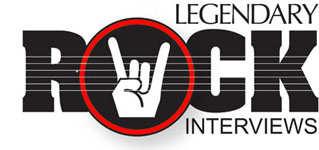Another Lost Year talks about touring, showering and “Better Days”
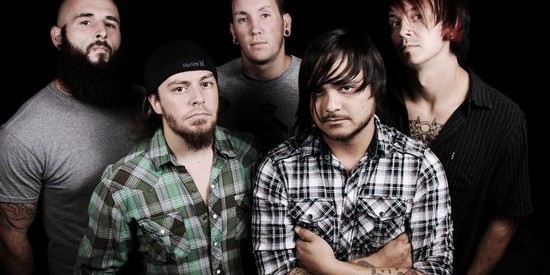
The band Another Lost Year had a very eventful 2012 and is gaining even more steam in the first quarter of 2013 with the release of their full-length debut, Better Days. The band has had their music featured on Mötley Crüe bassist Nikki Sixx’s radio show Sixx Sense, been a regular on Sirius Satellite Radio and countless other stations and toured with a ton of big national names like Pop Evil, Candlebox and Bobaflex. Clinton Cunanan, lead singer of Another Lost Year, recently reached us to talk a bit about his band, his album and more.
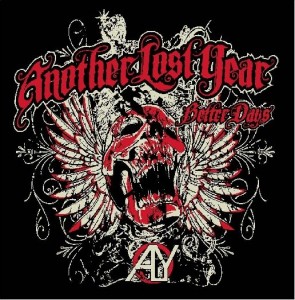
Album cover of Another Lost Year’s new album, “Better Days”
Q. Thanks for talking with us. I have listened to your album and am thinking you are a band to watch this year. It sounds like there is a ton of emotion poured into this. Are you happy at the way people are responding to it so far?
A: Honestly, I could not be happier. Maybe if I had a unicorn, but I don’t think those are real. People are really latching on. I write from the heart and personal experiences. I think people just get that, and thank you for saying that!
Q. You have covered everything from a soaring duet ballad like “Angel” to the heavier tracks on the album like “Broken,” and it is all tied together with a flair for catchy guitar riffs and soulful vocal parts. Do most of your songs start from a lyrical idea or a musical composition?
A: Everything is written in the shower, then I sit down with an acoustic and start putting it together. I wrote “All That We Are” around the line, “if I could take out your eyes, I could see your point of view.” Really no method to it, just whatever I feel is what comes out.
Q: You have been played on national satellite radio and major outlets as well as providers like Pandora, and I was wondering … how did you feel the first time it sunk in that your music was reaching people through these avenues?
A: I felt blown away. It was absolutely amazing to hear one of our songs on the radio, hundreds of miles from home.
Q: What was the inspiration behind your single “War on The Inside” and how much different does your material like this sound or feel to you when performing it live?
A: We try and replicate the album, as you hear it. We don’t use tracks or processors live, so you get it raw, and I mean raw. All harmonies are recreated live, all delays, everything. “War” was written about a year after my mom died. I was at a major crossroads in my life, and it was just my story at the time.
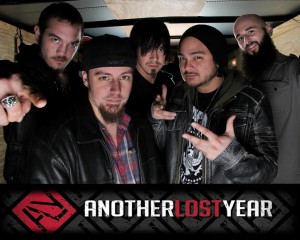
Q. Touring is fun but can also be demanding and draining. Do you get a chance to really communicate with and understand your fans and do you think the average person understands just how much buying a T-shirt or a CD at the merch stand after a gig can help a band and sustain life on the road?
A: Absolutely! Every sale we reiterate that they are feeding us or getting us to the next town. Touring is very hectic. This is my second touring band. The first, the longest we ever stayed out was 52 days. I think we are going on roughly 16 months. It’s been brutal, but I can honestly say I have lived every minute of those 16 months.
Q: I have talked with other bands from the Carolinas and they have mentioned that there is a very real and thriving scene there for nightlife and bands. This isn’t always true of other areas. What do you think makes your home base special and how important have your local fans been as your band has grown?
A: Ha! I wonder what nightclubs they are going to … Charlotte is an interesting town. We can pack out our home venues, but it has taken us quite some time to do that. We are a new band, slowly approaching 2 years old now, and I think you have to have a good product, be personable and really care that people take their time to come and see a show. We can’t do this without our friends, fans they may be, but friends is what they truly are. The music scenes across the country are up and down. The Midwest is booming, and those little towns where you think you’re the only person there tend to show out in full force.
Q: You have previously released an EP and done plenty of touring and support slots for established, national acts. When you put in that much time playing with and watching other bands, it tends to have some kind of effect on you. What do you think has been the most beneficial part of being able to play those support gigs?
A: We definitely watched every band we have ever played with. You learn what they do, how they interact, how they move, and you apply that to what you do. This is an ever-evolving industry, and if you’re standing still, you’re moving backwards.
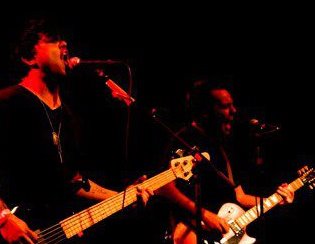
Q: The band has a real sense of darkness or frustration at times, but through all of it comes a sense of catharsis or relief. Do you think that your band can serve as that kind of therapy for yourselves as well as your audience?
A: This band is my therapy, and these songs are my therapist. If it doesn’t serve as therapy for our listeners, what are we doing here? Music can pick you up,knock you down, make you smile, laugh and cry at the same time. It’s something that lives in us all. These are my stories of how I coped, what I encountered and how I managed to overcome certain demons, be it relationships, depression, drugs, and so on…
Q: I assume you guys have been playing for quite some time prior to this point and have learned quite a bit. If you could somehow communicate some advice to the 14-year-old version of you, what would it be?
A: Always trust your gut and never stop believing. Live the life you want, in the one that you have, and one day the two will coincide. Thanks for the chat! Check us out on all social media sites, www.anotherlostyear.com, iTunes, anywhere music is sold, and, of course, in your hometown! Oh, and one more thing to my 14-year-old self … work out harder! I’m trying to wash clothes on my stomach — I could use your help
http://www,anotherlostyear.com
Category: Interviews
